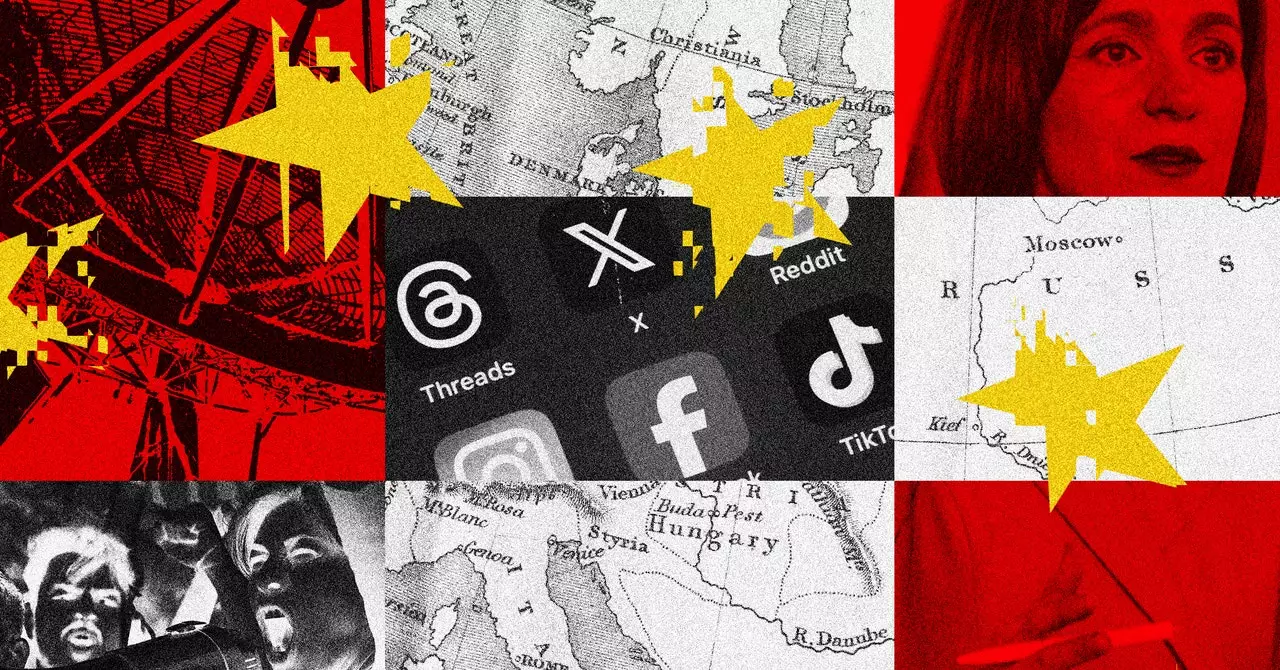In a curious twist of events, a TikTok video featuring Brian Baumgartner, best known for his role in the U.S. version of *The Office*, emerged as an unexpected focal point in the Moldovan political landscape. In this video, Baumgartner, speaking with a thick accent in Russian, allegedly supported the insurrection against Maia Sandu, Moldova’s pro-European president. This incident alarmingly illustrated how modern platforms and influencers have become unwitting participants—or perhaps even tools—in geopolitical strife. The fact that Baumgartner’s message was made possible through Cameo, an app designed for personalized celebrity shout-outs, underscores the troubling intersection between social media, celebrity culture, and political manipulation.
Moldova’s predicament is a glaring example of how disinformation can be orchestrated on a global scale. According to investigations, the influential videos featuring U.S. stars were not benign. Researchers have labeled them part of a broader strategy by pro-Kremlin entities looking to destabilize a nation that sits precariously between the West and Russia. Historically marginalized in discussions surrounding digital misinformation, Moldova has recently become a case study for how seemingly innocuous tech platforms can be weaponized. The rise of bot-generated activity, along with targeted political ads flooding social media, paints a disconcerting picture where the truth becomes distorted amid noise and chaos.
Delving deeper into this situation reveals that the financial inducements behind these disinformation campaigns are far from trivial. Reports estimated that Meta, the parent company of Facebook, reaped at least $200,000 from ads explicitly aimed at influencing Moldovan voters. This raises significant ethical questions surrounding the responsibility of social media companies in preventing their platforms from becoming conduits for misleading narratives. Why, for instance, would a major corporation allow its environment to be exploited for sumptuously-funded campaigns that jeopardize the democratic processes in sovereign nations?
What is happening in Moldova serves as a forewarning for the wider world, particularly in an era where political polarization is rampant and social media is the primary arena for political discourse. As noted by Ana Revenco, a former interior minister of Moldova, the implications of Russian influence extend beyond Moldova’s borders. “If [Russia] can use them here, they can use them everywhere,” she cautioned, highlighting an alarming potential that could upset democratic norms internationally. The recent uptick in aggressive Russian-backed social media accounts further emphasizes this point.
As Moldova braces itself for a crucial presidential election and a referendum that could shift its allegiance toward the EU, global audiences need to recognize and understand the ramifications of these strategies. The merging of celebrity culture with political influence on social media is not just a local problem but a multi-layered challenge needing coordinated efforts to mitigate. The battle against disinformation is as much about shaping narratives as it is about safeguarding democratic ideals. Engaging critically with media and being vigilant about the sources of information may become imperative in ensuring citizens are not just consumers but informed participants in their democracies.

